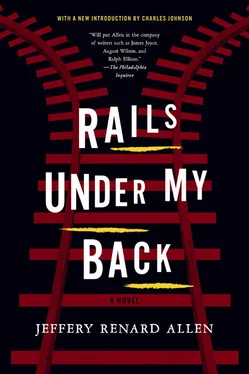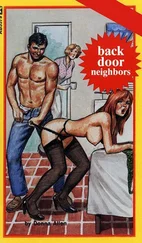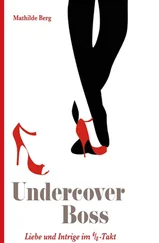Student heads bob laughter.
Time in the moment of waiting. This day barely different from the last. No Deathrow. No sight. No sound. No touch. Her heart shivers to stay her body. How much longer will I wait? She still— this is my job —letting wonder hold. (Could she afford less wonder?) Her mind, holding. Her body, waking and waiting, a gentle wearing down. The world gone over with the edge of sunrise, she had lifted her head from her exhausted pillow, bathed, dressed, baptized her earlobes with perfume, considered lipstick — tubular colors glittered in their steel bulletlike shells — taken the train, numb to the day, walked across the spring grass, the grass hissing at her heels, ducked under black boughs, angled through sections of the sculptured garden where hoses sprayed furious foam, where — above — pigeons turned again and again, air on air. So morning found her, serene and neat, fully upright in an armless chair (plain, hard, wood), her proud flesh exposed for training eyes.
What did I say or do? Maybe he met with an accident, black and blue. Deathrow. He never broods for days. So unlike him. Feel and feel in return. Only pain (or death) would keep him away from me, keep him from calling. She shivered at the thought, the inward turn of mind. Think the best. He is angry, even if lasting anger is uncharacteristic. Only one knows how two feel. She can ask, ask herself, how to the other she may appear, to his eyes and heart. Yes, the possibility of blind feeling when like-minded lovers harden, change.
Number is the key to harmony. Two perpendicular lines, one from nipple to nipple, the other the length of the torso. Simple ratios between the height of the columns and the spaces between the axes.
She could always go to Red Hook.
The surest way to a center is through a maze. The instructor drains the saucer to hollow whiteness. Burps. Catch light as a design on us.
Now the instructor’s voice wakens her, awakens in her the need to know. Heavy in her chair, weighted with alternatives. Yes, she could go to Red Hook and end the uncertainty.
Once, she had driven there through freezing rain.
It was nine at night and had been storming all day. Heavy rain jumped like divers from the clouds and collided against the car’s roof. (She would have to search it for dents. Yes, the Datsun 280ZX was brand-new then. ) Her windows steamed, wind rushing the rain in. Bubbled in cowled sound, she drove slowly and carefully, illuminated by the dashboard’s green light. Traffic was heavier than usual in the city streets and even slower on the highway. Stalled cars floated, water-soaked driftwood. Stalled buses like watering elephants. She put her foot on the gas — the rain accelerated — wheeled to the outside lane and speeded past the limit. It didn’t take her long to reach South Lincoln. (Yes, she had seen it.) South Lincoln tilted into Tar Lake as if a careless broom had shoved it there. The Red Hook Housing Projects— the jets, so they called it, toilet flush and airplane roar — ringed it, a soaring metal commode flooded with an invisible tide of heaving black brown yellow flesh.
She turned off at the exit. Entered a valley. The car whined down a black strip of street. Touched waters curved away from the windshield, carrying wake behind. Sealed inside the car, she observed square metal giants that looked down on small slumped-over houses set down boulderlike and squeezed together in silent rows.
At the red-staring stoplight, she observed knucklelike roots that had pushed up through the concrete pavement but no tree. Flocks of vivid children threw bread at one another, their laughs and taunts fluttering up. The light blinked green.
She drove past the Wells Street Port with its railroad tracks extending onto docks where Tar Lake raged black waters. She was close now. Deathrow lived by himself — he had little to do with his family; long ago, he’d decided that they were guppies, eating their young — in a row house that was part of Red Hook but a good mile or more away from it.
Her wipers quit. The windshield cried with blind rain. She worked the switch. The wipers refused to function. She would have to exit the car, enter the rain, and manually set the wipers back in motion. Sighting out the passenger window, she swung car to curb and kept the engine running. Under a blind streetlamp, corner boys tried to float an old gym shoe on a puddle. And hooded boys (men?) moved lethargic, dreamlike, in the half-light of rain and street.
She stood away from the memory. Kept it at a distance. Ah, Deathrow. Deathrow.
The instructor cut his eyes toward her. His nostrils flared a little. Had she said it out loud? Or moved with the thinking of it? Deathrow.
EVEN THE SKY WAS DIRTY HERE, canvas-colored, a rough sun pasted to it. Used papers fluttered about, giant moths. The morning full of sirens, moving in waves, crashing and rising again. Stonewall and Red Hook ran the distance of the horizon. Gatewayed in his eyes. Sparkled like two big buckets cast down in the middle of South Lincoln. He walked with measured steps. Every few seconds, his head wheeled back over his shoulder. He raised his arms like wings. Sticky sweat beneath his shirt. Many a time he had placed himself into the hollow form of a chalk-white sidewalk tracing, space that defined South Lincoln nightly on the TV news. He was alone here.
South Lincoln was like another country, cut off and remote from the one on the rim. He knew. Before the Great Fire of 1871, locals called this strip of land, which ran west from Stonewall all the way east to Red Hook, Mud Europe. Poor white trash lived in low wooden houses on pole foundations that kindled into fire nightly. After the Great Fire, the city replaced them with brick town houses. Then the city tapped rail upon rail to form high-rises, a steel gift for veterans returning from the war. In a space of years, the once low shoebox houses had stretched to boot-tall projects.
A car rolled past and roared to a stop at the corner, turned, leaving behind the power of its sound. Red Hook rose up before him. A still red flower, sixteen buildings arranged petal-fashion. Wine-flushed niggas dogged a corner, leashed to a lamppost. Nerves went electric in his body.
What up, player?
What up, he said.
You straight?
I’m straight.
I got the best.
I’m straight.
Rock to you can’t stop. Make you wanna drop.
I’m straight.
Aw ight, player.
At the next corner, another group of niggas stood. Silent. Sunlight slipped inside the caves of their bowed hoods. Gleamed off bald heads. He concentrated on keeping his pace.
The project walls had the thickest bricks he’d seen. Bricks made of iron, not straw. He could feel wet heat inside them. They could withstand a bomb blast. A bomb could do no more than age the sidewalks, add some cracks.
Voices speeded in. Voices of red song, red song. Sound on skin. Sounds of skin. Noise closer upon him than his own clothes. A chicken scratch of words clawed at his eyes and ears. A charcoal dog barked from the wall. Building One. The white-painted 1 ran a rough pattern over rough brick, crayon smeared on wax paper.
He stood before a door, two slabs of steel, at the top of each a box of thick glass window covered with iron wire. The lock buzzed, sending fire through his body, and the slabs opened, light to the touch, inward like a church. He stepped into a vestibule of red tile walls and cereal-colored tile floors. Ripe heat. A man sat short like a ventriloquist’s dummy in the lap of a big wheelchair. Missing the lower halves of his legs. A second man sat next to him, his legs hidden under a metal block of desk. Wrinkles in his neck and face thicker than his mustache. A metal clipboard in reaching distance of his worm-wrinkled fingers. The fingers inched, crawled toward the clipboard. This old motherfucker workin security?
Читать дальше












